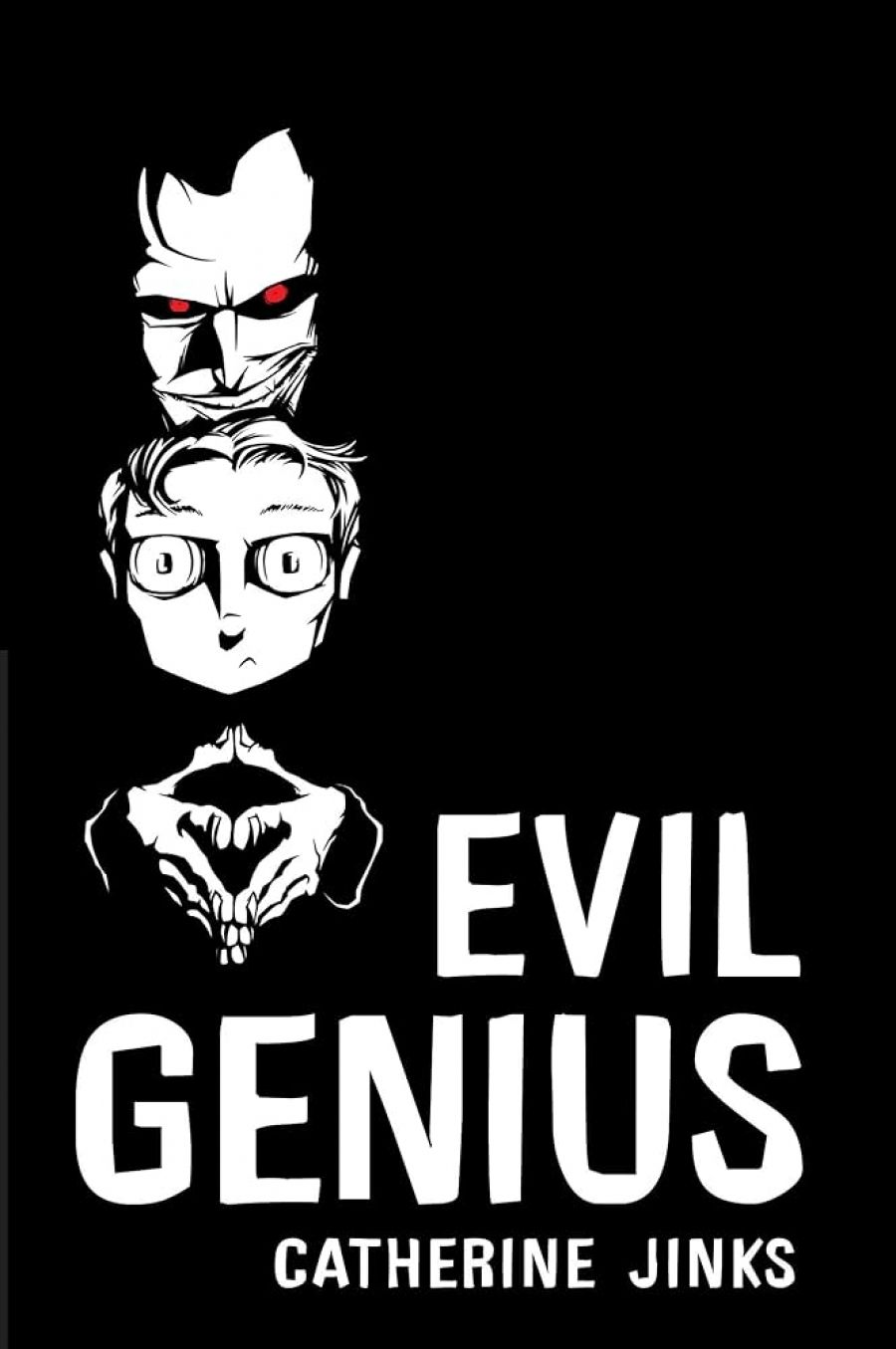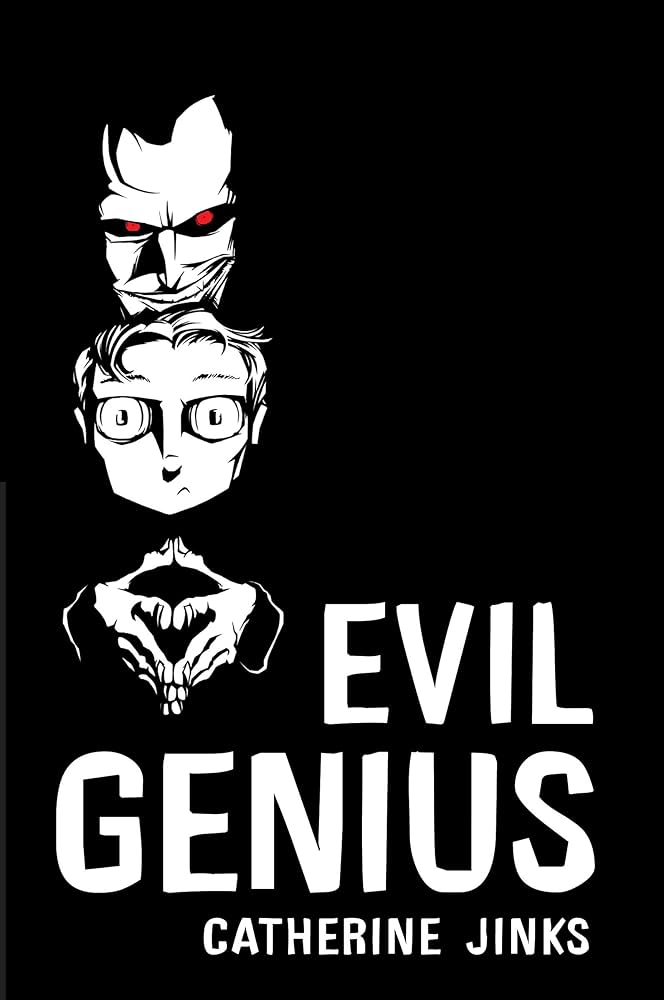
- Free Article: No
- Contents Category: Children's and Young Adult Fiction
- Review Article: Yes
- Article Title: University of evil
- Online Only: No
- Custom Highlight Text:
At the start, Catherine Jinks’s teen novel Evil Genius resembles a local edition of ‘cult’ blockbuster phenomena such as Harry Potter and Buffy, the Vampire Slayer – wish-fulfilment fantasies about misfits initiated into a hidden élite. On page one, we are introduced to Jinks’s protagonist, Cadel (Welsh for ‘battle’), a brilliant but barely socialised young boy obsessed with computers. His adoptive parents are named Stuart and Lanna Piggott, which should tell you all you need to know. Aged eight, this outwardly placid but potentially vengeful nerd learns from his psychologist mentor that his true father is a mad scientist named Phineas Darkkon, who has made millions through scams such as a line of shonky vending machines, and who subsequently bankrolls a secret University of Evil located in central Sydney, where, a few years later, Cadel precociously winds up. Among the subjects on offer are Basic Lying, Forgery, Assassination and Guerrilla Skills; the other students include a Goth chemist who is trying to turn himself into a vampire, and a pair of bitchy, telepathic twins.
- Book 1 Title: Evil Genius
- Book 1 Biblio: Allen & Unwin, $16.95 pb, 471 pp
- Book 1 Cover Small (400 x 600):

- Book 1 Cover (800 x 1200):

It would take a funkier or more vigorously naïve writer than Jinks to treat this hokey mythology seriously, and the book’s science-fiction elements never carry any more conviction than in one of those after-school television serials about a team of kids in a spaceship. Yet despite its facetiousness, Evil Genius isn’t any kind of spoof: it’s far too long and involved, as if an initially arbitrary set of ground rules had taken on an unstoppable logic of its own. For hundreds of pages, members of the absurdly large cast are shuffled like chess pieces around the campus of the Axis Institute; most are assigned just one or two fixed traits each, while others are removed from the board before their more intriguing possibilities can be developed (as with the twins mentioned above).
But while the B-movie atmosphere may be too thin for characters to breathe with comfort, the sheer narrative density generates a kind of artificial life. The leisurely opening suggests relaxed, even careless improvisation, but in the second half it is a challenge to the reader’s intelligence simply to keep track of all the bluffing conversations and intercepted e-mails, nodal points in a network of plots and counterplots meant to dramatise Cadel’s love of complex, abstract systems. It is a penchant that Jinks shares, judging by her geeky enjoyment of over-researched details about chemistry and maths equations, and her zest for the act of storytelling, which she performs page by page with professional skill, knowing how to plant the seeds of a mystery and when to end a chapter.
On a deeper level, here, as elsewhere, it is hard to see this author as taking up any strongly defined imaginative position. Despite some excursions into adult fiction, Jinks remains best known for Pagan’s Crusade (1999) and its sequels, self-consciously brisk and slangy historical novels for teenagers: the brio is genuine, but the total effect is a bit naff, like a comic strip which ‘makes learning fun’. Neither the assets nor liabilities of this style are much evident in Evil Genius, which is written in straightforward children’s-book prose a couple of notches above J.K. Rowling, alert and fluent if slightly over-explicit for the sophisticated reader (of whatever age).
There is a ruthless aspect to Jinks’s professionalism that enables her to be effectively matter-of-fact about everyday nastiness, with flashes of malice that hover on the edge of outright wit. Yet she’s also a very traditional children’s writer, closer, in the end, to the moralising tradition of the realist novel than to the pop euphoria of Buffy. By far the most gutsy aspect of Evil Genius is its frank yet sympathetic portrait of an anti-hero whose redeeming qualities, at first, seem few and far between: though schematically drawn, Cadel registers most of the time as an authentically unpleasant, ‘gifted’ male teenager, a feline pretty-boy who is coolly analytical of other people’s motivations, yet baffled and terrified by his own. The occasional moments that fail to convince relate mostly either to the fantasy plot contrivances or to the tentative handling of Cadel’s sexuality (though some of his classmates assume he is gay, he is launched by book’s end on the most innocent of straight romances).
In a sense, Cadel turns out to be the opposite of Harry Potter: despite being anointed as a future world ruler, what he learns is not that he is special but that he is normal, his adolescent struggles and confusions much like those of anyone else. Beneath all the lurid narrative busywork is an extremely simple story about a bright kid with a lot of growing up to do. It is not a new theme, but it is compelling enough here to suggest that it might have been better explored in a realist mode. Or is it that Jinks, like her hero, feels more comfortable with abstract power fantasies than direct emotion?


Comments powered by CComment